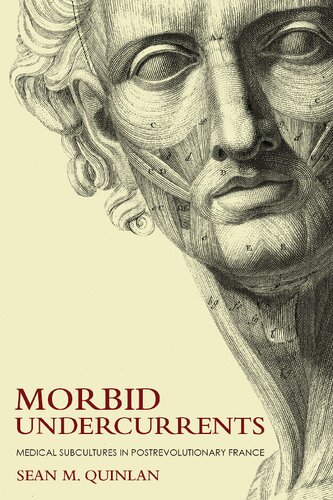

Most ebook files are in PDF format, so you can easily read them using various software such as Foxit Reader or directly on the Google Chrome browser.
Some ebook files are released by publishers in other formats such as .awz, .mobi, .epub, .fb2, etc. You may need to install specific software to read these formats on mobile/PC, such as Calibre.
Please read the tutorial at this link: https://ebookbell.com/faq
We offer FREE conversion to the popular formats you request; however, this may take some time. Therefore, right after payment, please email us, and we will try to provide the service as quickly as possible.
For some exceptional file formats or broken links (if any), please refrain from opening any disputes. Instead, email us first, and we will try to assist within a maximum of 6 hours.
EbookBell Team

4.4
12 reviewsInMorbid Undercurrents, Sean M. Quinlan follows how medical ideas, stemming from the so-called birth of the clinic, zigzagged across the intellectual landscape of the French Revolution and its aftermath. It was a remarkable "hotspot" in the historical timeline, when doctors and scientists pioneered a staggering number of fields―from forensic investigation to evolutionary biology―and their innovations captivated the public imagination.
During the 1790s and beyond, medicine left the somber halls of universities, hospitals, and learned societies and became profoundly politicized, inspiring a whole panoply of different―often bizarre and shocking―subcultures. Quinlan reconstructs the ethos of the time and its labyrinthine underworld, traversing the intersection between medicine and pornography in the works of the Marquis de Sade, efforts to create a "natural history of women," the proliferation of sex manuals and books on family hygiene, anatomical projects to sculpt antique bodies, the rage for physiognomic self-help books that taught readers to identify social and political "types" in post-revolutionary Paris, the use of physiological medicine as a literary genre, and the "mesmerist renaissance" with its charged debates over animal magnetism and somnambulism.
In creating this reconstruction, Quinlan argues that the place and authority of medicine evolved, at least in part, out of an attempt to redress the acute sense of dislocation produced by the Revolution. Morbid Undercurrents exposes how medicine then became a subversive, radical, and ideologically charged force in French society.